Have you ever been confused about how to choose the right sunscreen? What is SPF 30 meaning? What is SPF 50 meaning? Is more expensive sunscreen better?
With so many different products, various information and enormous advertising, choosing the right one can get complicated.
Many people are actually afraid of causing more harm to their skin by choosing the wrong product, so they prefer to stop using anything, I’ve heard that a lot.
So I have provided you with some key information to ease the process and answer your questions as much as possible.
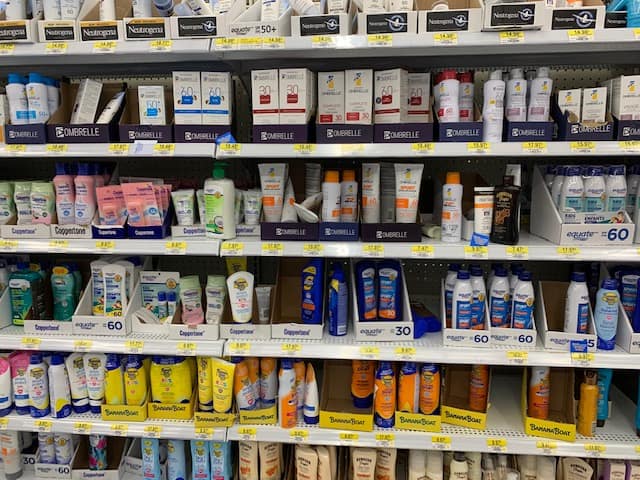
Why sunscreen is important?
What is UV radiation?
There are 3 types of ultraviolet (UV) radiation emitted from the sun. All UV rays cause skin cancer.
- UVA is responsible for phototoxicity, photoaging, immunosuppression and skin cancer. It penetrates the skin more deeply than ultraviolet B (UVB) and is responsible for most phototoxic reactions to drugs.
- UVB affects the skin’s surface and it is the primary cause of sunburn. It can cause eye damage, immunosuppression and skin cancer.
- UVC radiation is very dangerous, but it is filtered out by the ozone layer.
What is SPF 30 meaning? What is SPF 50 meaning?
SPF (sun protection factor)
SPF is the sun protection factor that simply shows how well a sunscreen protects the skin. SPF is defined as the least amount of energy needed to produce erythema (primarily UVB) with sunscreen, divided by the least amount of energy needed to produce erythema without sunscreen.
What is SPF 30 meaning?
SPF 30 means that 1/30 of the UV rays reach the skin and 96.7% of UV rays are blocked.
What is SPF 50 meaning? it means that sunscreen with SPF 50 can block 98% of UV rays and sunscreen SPF 60 can block 98.3% of UV rays.
Doubling SPF does not double the protection, the difference is only 1%, so you decide to choose between SPF 30, SPF 50 or SPF 60, keep in mind there is no sunscreen to block 100 % of UV rays.
The Canadian Dermatology Association recommends that sunscreens should have an SPF of at least 30 and offer broad-spectrum UVA and UVB protection.
Physical or chemical sunscreen? Which one is better?
Sunscreens containing titanium dioxide, zinc oxide, kaolin, talc (magnesium silicate), ferric chloride and melanin are physical sunscreen. They protect the skin against UVA and UVB by covering the skin and reflecting and scattering UV and visible light.
Physical sunscreens are less irritant but they give you a white look that may not be pleasant for everyone, however, the newer products are well designed to be more cosmetically acceptable.
Commercial products usually contain more than 1 active ingredient in order to provide broader protection and photostability. They should be applied 15 minutes before UV exposure to allow active ingredients to bind to the skin. If you have sensitive skin you may have to use a physical one.
How to apply sunscreen?
You have to apply sunscreen evenly and generously to all areas of the body that are exposed to the sun, including hands, legs, feet, lips and ears, no matter what kind of sunscreen you are using.
You should apply it 15 minutes before sun exposure and repeat it every 2 hours. Sunscreens should also be reapplied after swimming, sweating or towelling, even if you are using water-resistant sunscreen.
How much to apply?
You have to make sure the sunscreen makes a film on the skin. For easier measurement, it is recommended that you apply:
- 0.5–1 teaspoonful on the face and neck
- 1–1.5 teaspoonfuls to arms, shoulders and torso
- 2–2.5 teaspoonfuls to the legs and the tops of the feet.
Even with high SPF sunscreen, if you don’t apply enough, you won’t be protected.
Why do we have to wear sunscreen in winter?
We need to apply sunscreen every day even in winter or cloudy days. In winter days we get less sunburn because of the weaker UVB rays, but UVA responsible for ageing and photodamaging is as strong as sunny days. Both UVA and UVB may cause skin cancer according to Harvard scientists.
Is it bad to wear sunscreen every day?
No, applying sunscreen is not dangerous. There is false information about applying chemical sunscreens and having skin cancer. However no study shows a link between these chemicals and cancer.
Having serious skin disorders even after applying sunscreen may indicate sunscreen has been applied far less than the recommended quantity.
Is there a sunscreen for sensitive skin?
Physical or inorganic sunscreen containing titanium dioxide and zinc oxide can be a good choice for sensitive skin. They protect the skin against UVA and UVB and generate less risk of sensitization than chemical sunscreens.
What is the difference between cream, lotion and spray?
There is no difference between the different formulation of sunscreen in terms of protection against UVA and UVB. Some formulation may be easier or more pleasant to use for some people, it’s a personal choice.
Sprays are easy to apply and they can be useful for hard-to-reach areas such as the back but they may be sprayed in a not-enough thin layer.
Creams can be helpful for individuals with dry skin. Gels are preferable for oily skin.
Sticks are good for small areas such as the lips and nose, and tend not to drip with sweating.
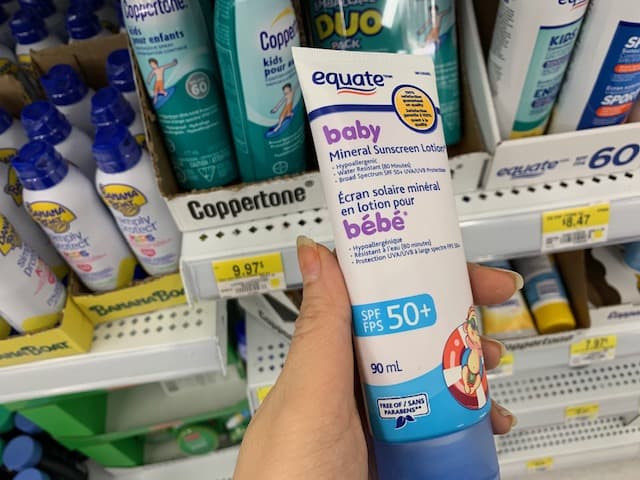
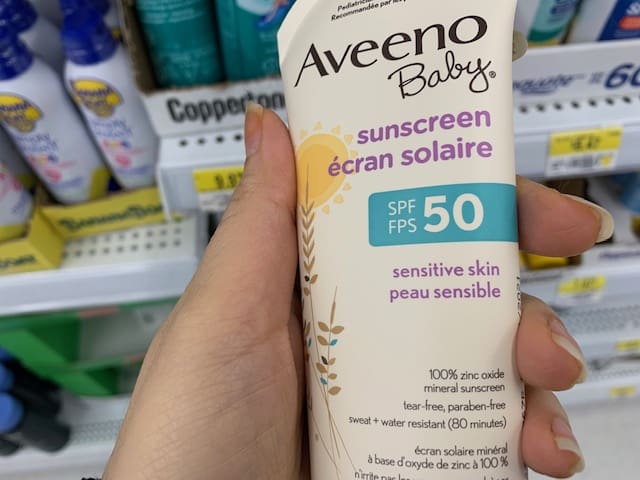
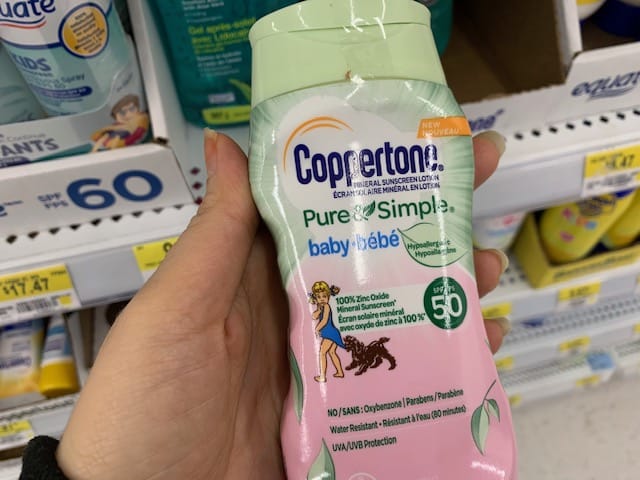
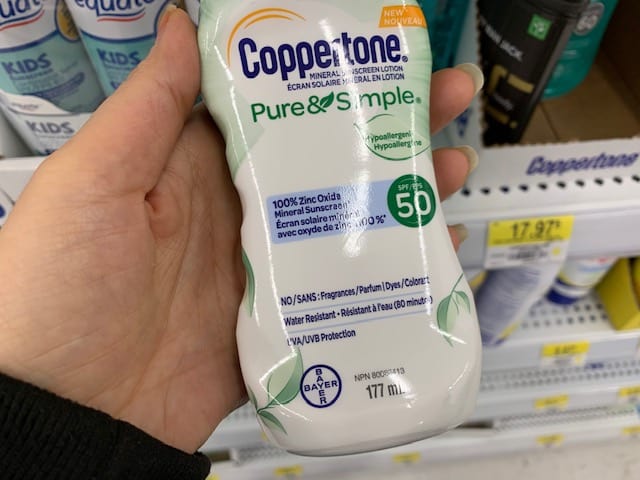
Is it safe to use sunscreen for baby?
To date, no data show toxicity from absorption of sunscreen ingredients in infants.
For infants less than 6 months of age, the best choice is avoiding sun exposure by providing shade with clothing, stroller cover and umbrellas. Wide-brimmed hats and lightweight, loose-fitting clothing that covers the arms and legs are necessary steps to avoid dangerous UV rays for babies.
Sunscreen for babies can be applied to the small exposed areas (e.g., face, back of hands).
Inorganic (physical) sunscreens containing zinc oxide and/or titanium oxide are minimally absorbed and less likely to cause sensitization, so they are suitable for babies.
Is there any waterproof sunscreen?
No sunscreen is waterproof. According to the Food and Drug Administration (FDA) the term waterproof is misleading and has to be removed from the labels. Some sunscreens are more resistant in the water than others and the labels must indicate how long the sunscreen remains effective. You should reapply your sunscreen after swimming, washing or towelling. Don’t forget to reapply the products for the lips after eating or drinking.
Are tanning beds safe?
Tanning beds are very tempting especially for younger women, but unfortunately, they are not safe and you have to avoid them. UVA rays that are normally used in tanning beds, penetrate deep in the skin’s layers and contribute to photoaging, damage to the eys and skin cancer. By tanning routinely, you may put yourself at an increased risk of developing skin cancer. Teenagers are particularly at higher risk since their bodies are at higher growth rates and their cells are more prone to the damage of the UV radiation.
Supplementary steps for more protection
Besides applying sunscreen, there are also many other ways to prevent the acute and chronic effects of sun exposure.
- Avoid direct sun exposure from 10 a.m. to 4 p.m. when your shadow is shorter than you. At this time UVB rays are strongest and UV Index is high.
- Seek shade as much as possible while outside.
- Wear protective clothing such as long-sleeved shirts, pants and gloves. According to a research article published in the Journal of the American Academy of Dermatology, physical protection can contribute to skin protection against photodamaging and skin cancer.
- Wear sunglasses to protect the eyes from sun damage.
Please leave your comments and let me know if you have any questions and share your experiences with me and please share my posts with your friends and anyone who can get benefits.
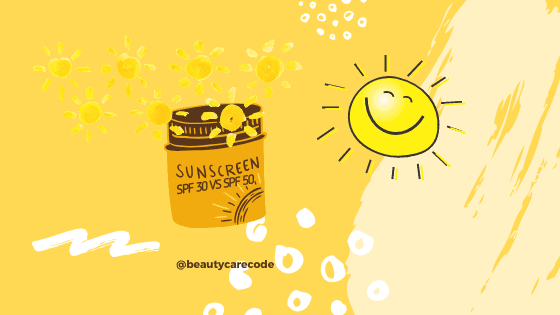
Pingback: Best soaps or cleansers for acne - Beauty care code
Pingback: Hyaluronic acid vs Glycolic acid - Beauty care code
Pingback: Bakuchiol, your best anti-ageing skincare? - Beauty care code